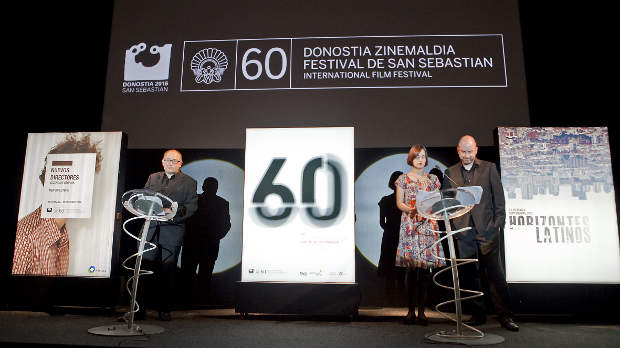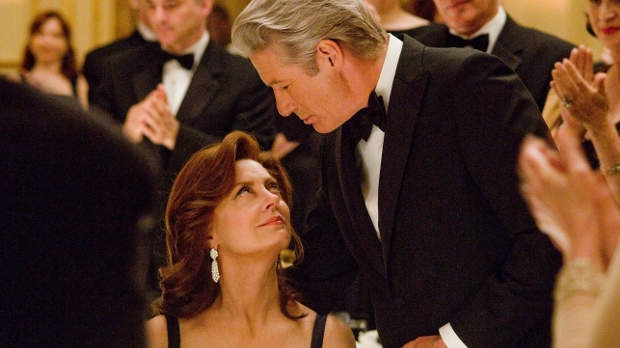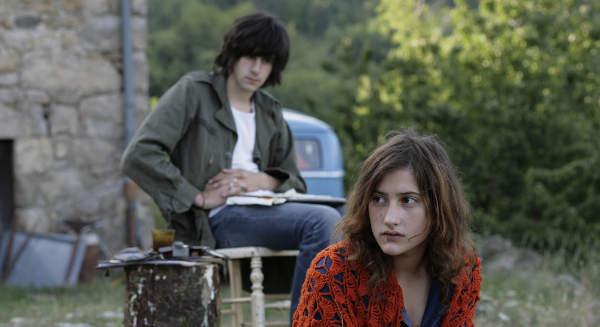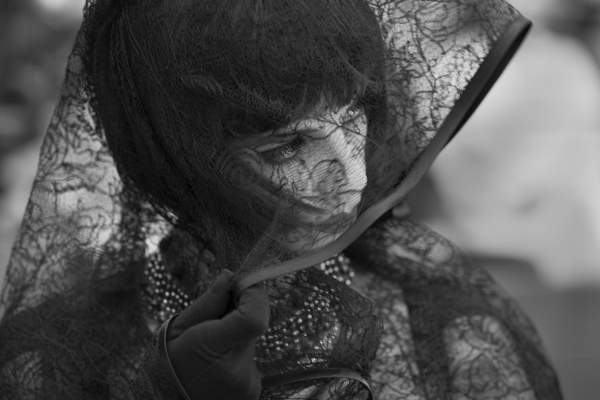 Back to selection
Back to selection
San Sebastian Critic’s Notebook #1

San Sebastian is celebrating six decades in the film festival business with the insistence that “60 years is nothing.” In their welcome guide this year, the organizers say: “As far as a film festival is concerned, 60 years shouldn’t be concealed with facelifts, but should be flaunted proudly.” There’s little doubt that the ever-increasing leviathan that is the Toronto International Film Festival is having an effect on any festival close to its dates — and San Sebastian follows hot on its heels. But José Luis Rebordinos’s second edition as director shows this Basque country old lady has plenty of life in her yet, with the program bringing together the cream of Cannes, films fresh from Toronto and plenty of star quality — from the likes of Richard Gere and Susan Sarandon to some of the leading lights of Latin America.
But if the biggest Spanish-speaking film event in the world is in the business of looking forward — establishing a Europe-Latin America Co-production Forum to add to its industry links — many of the films I’ve caught so far this year have been examining the past.
The festival opened with the all-too recent memories of economic turmoil, courtesy of Richard Gere and Susan Sarandon in Nicholas Jarecki’s tense thriller Arbitrage. The film’s stars, fresh from its opening in the US, were on hand to stir up the crowds and indulge in some press conference banter, ranging from politics to Gere’s walk, which he revealed had once been described by a Brazilian journalist as like that of “a garden swan.” “They must have different swans there,” adds Sarandon, with a smile.
The past is a serious business for Gere’s protagonist but Pablo Larrain — who has long had an interest in Pinochet’s lasting impact on Chile — brings a surprisingly rich vein of black humor to No, which could certainly be viewed as the last part of a trilogy running chronologically through the dictator’s reign from Post Mortem, through Tony Manero. Gael Garcia Bernal is better than he has been in ages as an advertising executive who becomes an unlikely hero in the opposition parties’ campaign to oust Pinochet in a yes/no vote forced by the international community.
Larrain fully embraces the period, right down to using an Ikegami camera from 1983. The grungy aesthetic, akin to watching an old TV show on a dodgy set, may take a little getting used to but it enables him to merge his film with large chunks of archive footage so no one can see the join. Perhaps most cleverly of all, however, Larrain has taken a specific event and used it to explore its universal significance in terms of the way that politics have become — or perhaps, have always been — a commodity, relying more on being sold to the masses than winning them over with argument.
There are political protests aplenty in Oliver Assayas’s semi-autobiographical Something in the Air — which, like No, will also be showing at New York Film Festival in the coming weeks. Drawing on memories of his youth, Assayas has created a film he describes as “sketched outlines to a collective portrait” of youngsters who brought the voice of the May 1968 student protests firmly into the Seventies. Although the film is perhaps a little overlong, Assayas brings an intimacy to his document of those on the left, focusing as much on the heady mix of hotheads and hormones as on the fracturing left-wing debate.
If Assayas’s portrait of memory is colored by specific personal experiences, we can all bring our personal recollections to the black and white silent treat Snow White (Blancanieves). Ask 50 people to tell you the Brothers Grimm story and you’ll get 50 different versions on the same theme — which is doubtless one of the reasons for the number of adaptations of this particular fairytale we’ve had this year. Pablo Berger — back after a nine-year absence since Torremolinos 1973 — has brewed a striking, silent treat that is likely to see fans of The Artist flocking back to cinemas if a distributor will take it on. Here Carmen — who will later take on the moniker of Snow White — is a girl growing up in 1920s Spain. After her bull-fighting father is gored into paralysis, she ultimately finds her life confined to drudgery at the hands of her evil stepmother. When the fairy tale takes its course and Carmen is left for dead in the woods, she is found by dwarfs with a difference — they are not miners but mini-matadors, who discover Carmen has inherited her father’s skill. Berger uses the black and white to great effect — after all, there are few things that lend themselves more to ideas of the black and white principles of pure good and evil than fairy stories — and the playful scoring by Alfonso de Vilallonga brings out both the humour and horror at key moments.
All this, and we’re only on day four of the festival, with plenty of movie memories still to be made.




